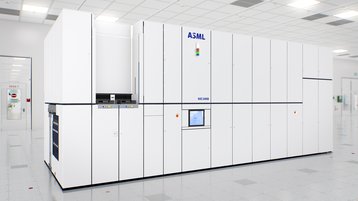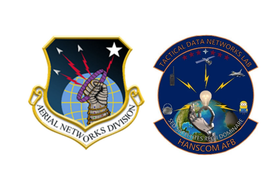Dutch chip equipment maker ASML saw its year-on-year net sales fall by 21.6 percent, totaling €5.3 billion ($5.6bn) for the first quarter of 2024.
Net bookings for ASML, the global sole supplier of extreme ultraviolet lithography (EUV) photolithography machines, were also down, falling from €9.2bn ($9.8bn) in the fourth quarter of 2023 to €3.6bn ($3.8bn) in the quarter ending March 31, 2024, including €656 million ($698m) for EUV. Net bookings include orders placed by customers but have not yet been delivered.
During the first three months of 2024, ASML sold 66 new lithography systems and four used systems. In the previous quarter, new and used system sales totaled 113 and 11, respectively.
ASML has been at the center of the US government’s ongoing trade war with China, with the Dutch government increasingly succumbing to pressure from the Biden administration to block exports of ASML products to China.
First, it banned ASML from selling its most advanced equipment to China, and then in January 2024, it revoked an export license to stop the shipment of two older lithography machines to Chinese customers. In late March, the US government announced it would start asking its allies to stop their domestic semiconductor companies from servicing chipmaking tools for Chinese customers.
Chinese companies bought 46 percent of ASML's lithography systems sold in the third quarter of 2023, generating around $3.7bn in revenue between July and November of that year.
Speaking to analysts after the results had been published, CFO Roger Dassen, said that while there had been speculation around the company’s order intake during the quarter, when combined with ASML’s 2023 Q4 results, the company had made almost €13 billion ($13.8bn) from bookings during a six month period.
He added that the company’s 2024 outlook had not changed, saying that ASML is looking at 2024 “very much as a transition year… that means a stronger second half than the first half. And also gearing up towards what we think is going to be a strong year of 2025.”
Dassen said ASML also expects its NXE:3800 NA (numerical aperture) machines to play a growing part in the company’s EUV sales in the second half of 2024.
NA EUV lithography tools provide a significant improvement on current EUV tools as they are capable of 8nm resolution rather than the traditional 13nm. Consequently, these NA EUV scanners are expected to play an important role in the manufacturing of 3nm chips and could reduce complexity, enhance yields, and reduce costs by removing the need for EUV double patterning from the process.
In January 2024, Intel received a first-generation Twinscan EXE:5000 High-NA extreme ultraviolet (EUV) lithography scanner. The machine is capable of producing more than 200 wafers per hour and the technology is expected to be mass-produced and inserted into Intel’s post-18A node sometime in 2025.






